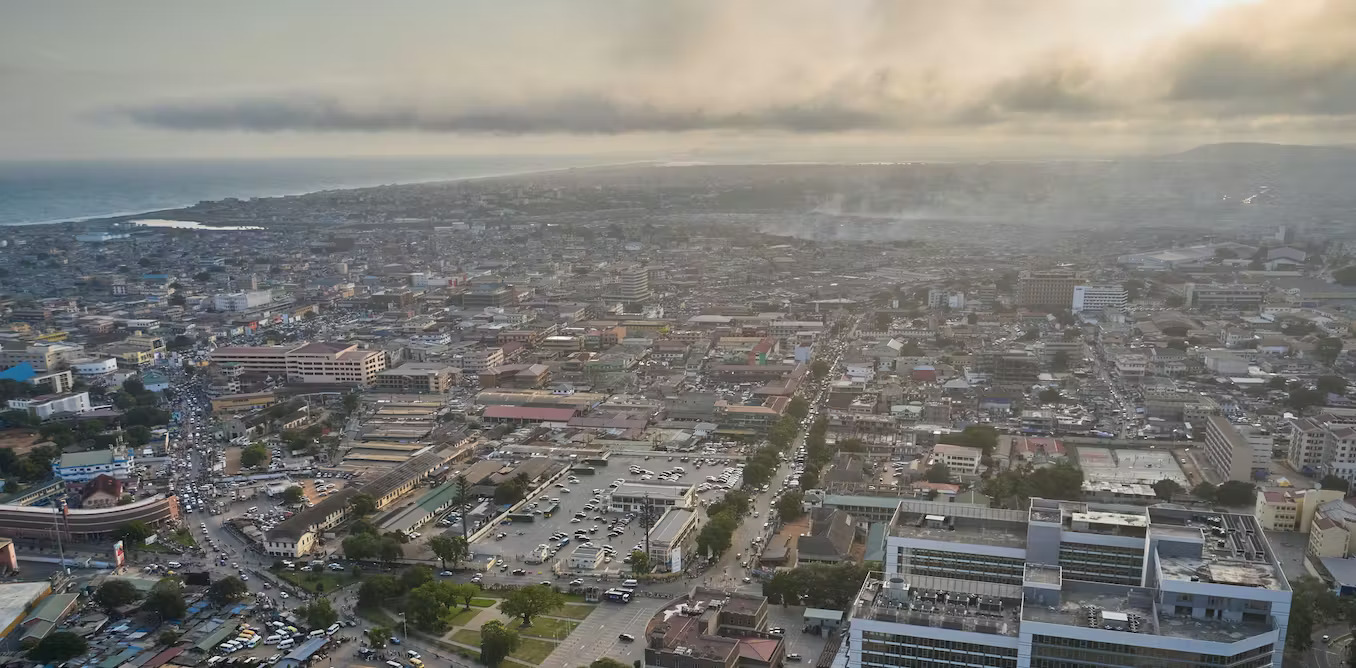Ghana’s Plans For A National Cathedral Are Mired In Controversy But Also Reflect Religion’s Strong Role In Its Identity
Ghana’s plans for a national cathedral are mired in controversy but also reflect religion’s strong role in its identity and the complexities of reconciling diverse viewpoints within a multicultural society. The project, while mired in controversy and delays, offers a unique lens through which to examine the role of religion in shaping a nation's collective identity.
Bernard HorneAug 16, 20231720 Shares132294 Views

Ghana’s plans for a national cathedral are mired in controversy but also reflect religion’s strong role in its identityand the complexities of reconciling diverse viewpoints within a multicultural society. The project, while mired in controversy and delays, offers a unique lens through which to examine the role of religion in shaping a nation's collective identity.
Religion has historically played a significant role in Ghana's identity, shaping its culture, values, and social fabric. The diverse religious landscape, which includes Christianity, Islam, traditional African religions, and more, highlights the country's rich spiritual tapestry.
The national cathedral project, intended to be an interdenominational Christianplace of worship, is a manifestation of Christianity's substantial influence on the nation's identity.
Ghana's government plans to construct a national cathedral, a massive, multidenominational structure that will serve as a venue for official functions and religious worship. Plans are for a 5,000-seat worship facility, a museum, and a music school, with a rumored $400 million price tag.
The project's largest supporter, President Nana Akufo-Addo, uses profound language to describe the cathedral on its website. In his essay, he claims that the cathedral "offers a historic opportunity to put God at the center of our nation's affairs and serves as a symbol of our eternal and ongoing gratitude to Him for the blessings He continues to shower and bestow on our nation."
The proposed national cathedral holds deep symbolism for Ghana. It is envisioned as a unifying space, transcending religious denominations to foster a sense of national cohesion.
While the project is centered around Christianity, its overarching purpose is to serve as a symbol of unity and inclusivity for all Ghanaians, reflecting the country's commitment to diversity and interfaith harmony.
However, Ghana’s plans for a national cathedral are mired in controversy but also reflect religion’s strong role in its identity. Some critics argue that a national cathedral should not be a priority in a nation with pressing economic and social challenges.
2020 saw the start of construction, although it was postponed due to cost increases and the post-COVID economic slowdown. These delays have also increased public arguments about the project's funding, with detractors and opponents claiming it is a priority that should be placed elsewhere, especially in light of the high poverty rate and the current economic crisis. The International Monetary Fund authorized a $3 billion loan to Ghana in May 2023.
Concerns have also been raised about the use of public funds for the project, which has led to debates over transparency and accountability. These controversies underscore the complexity of balancing religious aspirations with practical realities.
The national cathedral project also navigates the intricate relationship between cultural heritage and modernity. While the cathedral symbolizes a spiritual connection to the past, its modern architectural design reflects Ghana's aspirations for progress and growth.
This dynamic between tradition and modernity is emblematic of the broader cultural landscape, where Ghana strives to honor its historywhile embracing its evolving identity.
Conclusion
Ghana’s plans for a national cathedral are mired in controversy but also reflect religion’s strong role in its identity. The project's symbolism, controversy, and delays embody the nuanced ways in which a nation grapples with its history, aspirations, and challenges.
It serves as a reminder that the role of religion in shaping a country's identity is multifaceted, influencing not only its spiritual landscape but also its social dynamics and sense of unity. In navigating the complexities of the national cathedral project, Ghana continues to evolve as a nation where diverse voices contribute to shaping its destiny.
Jump to
Latest Articles
Popular Articles